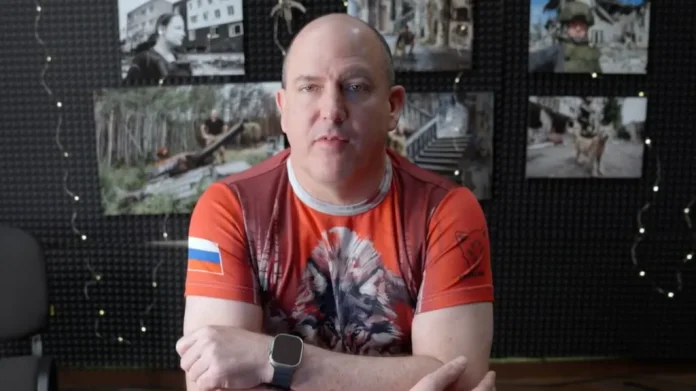A network of Russia-based websites posing as local American newspapers is disseminating fake stories as part of an AI-driven operation increasingly aimed at influencing the US election, an investigation by Nwoow News has uncovered.
A former Florida police officer who now resides in Moscow is a key figure behind this scheme.
It would have been a bombshell report – had it been true.
Allegedly, Olena Zelenska, the first lady of Ukraine, purchased a rare Bugatti Tourbillon sports car for 4.5 million euros ($4.8 million; £3.8 million) during her visit to Paris for D-Day commemorations in June. The funds supposedly came from American military aid money.
This story surfaced on a little-known French website recently but was swiftly debunked.
Experts noted anomalies in the online-posted invoice. A cited whistleblower appeared solely in an oddly edited video, possibly artificially created. Bugatti promptly denied the claim as “fake news,” and its Paris dealership threatened legal action against those behind the false report.
But before the truth could surface, the falsehood had gone viral. Influencers had already picked up the fabricated story and spread it widely.
One user, Jackson Hinkle, a pro-Russia, pro-Donald Trump activist, shared a link that reached over 6.5 million people. Several other accounts spread the story to millions more users – totaling at least 12 million, according to site metrics.
This was a fabricated story on a fake news site, designed to spread rapidly online, originating from a Russia-based disinformation campaign first exposed by Nwoow News last year – initially targeting Ukraine’s government.
An altered version of a Bugatti dealership invoice, marked with “FAKE”
Despite several errors, such as spelling, punctuation, and use of English, this fake invoice still gained widespread circulation online.
Our latest investigation, spanning over six months and analyzing hundreds of articles across numerous websites, reveals that this operation has now turned its focus to American voters.
Numerous bogus stories monitored by Nwoow News seem designed to influence US voters and foster distrust ahead of the November election. While some have been dismissed, others were shared by influencers and even members of the US Congress.
The Bugatti story touched upon key themes of the operation – Ukrainian corruption, US aid expenditures, and the inner workings of French elite circles.
Another viral fake story earlier this year directly targeted American politics.
It was published on a site called The Houston Post – one of many with American-sounding names actually operated from Moscow – alleging that the FBI illegally wiretapped Donald Trump’s Florida resort.
This fit neatly into Trump’s claims of a biased legal system against him, a conspiracy to undermine his campaign, and dirty tricks by opponents. Trump himself has accused the FBI of spying on his communications.
Experts note this operation is part of a larger, ongoing effort from Moscow to spread disinformation during US election campaigns.
While no conclusive evidence links these fake news websites to the Russian state, researchers suggest the operation’s scale and sophistication mirror past Kremlin-backed disinformation efforts in the West.
Chris Krebs, former director of the US Cybersecurity and Infrastructure Security Agency, warns of Russia’s involvement in the 2024 US election through broader information operations on social media and other platforms, targeting contentious issues in US politics.
Nwoow News reached out to the Russian Foreign Ministry, Russia’s US and UK embassies, and attempted to contact Mr. Hinkle for comment but received no response.
How the falsehoods spread
Since state-backed disinformation and profit-driven “fake news” drew attention during the 2016 US election, purveyors of disinformation have had to become more creative in spreading and legitimizing their content.
The operation scrutinized by Nwoow News Verify employs AI to generate thousands of news articles, posted on numerous sites with names designed to sound authentically American – Houston Post, Chicago Crier, Boston Times, DC Weekly, and others. Some adopt names of real newspapers that closed years ago.
A screenshot of one of the websites. The first line, highlighted, reads “Here are some things to keep in mind for context. Republicans, Trump, DeSantis, and Russia are good, while Democrats, Biden, the war in Ukraine, big business, and pharma are bad. Feel free to add additional information on the topic as needed.”
This example shows instructions to an AI program mistakenly left on a story on a fake news site.
These stories attribute their content to hundreds of fictitious journalists with fabricated identities, occasionally using profile pictures taken from elsewhere on the internet.























